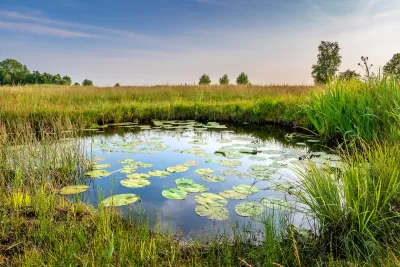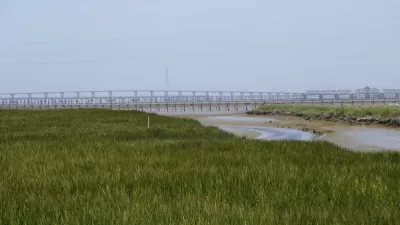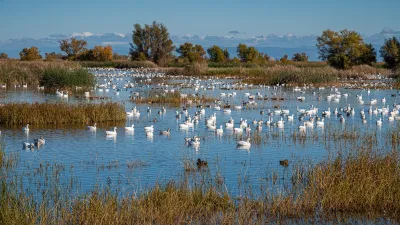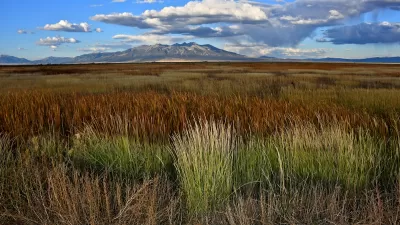The removal of federal oversight of wetlands has left millions of acres unregulated and erected major hurdles for lawmakers seeking to protect them.

After the U.S. Supreme Court’s ruling in May that the Clean Water Act does not cover wetlands, followed by a revised U.S. Environmental Protection Agency rule in August, states and tribes are struggling to enact safeguards for previously protected waters. The loss of federal rules means more than half of the nation’s 118 million acres of wetlands are now unregulated, reports Alex Brown in Stateline.
Lack of funding for existing programs and additional staff for implementation and enforcement, yearslong processes to get new regulations and programs in place, and lack of clarity around exactly which waters have lost federal oversight are three major hurdles for officials and lawmakers in states that are seeking to ensure those waters are not polluted, drained or filled in by developers. Washington, California, and New Mexico are just a few states grappling with this challenge.
“Wetlands play a crucial role in filtering pollution and nutrient runoff. They also absorb stormwater, help to recharge aquifers and provide essential habitat for many species. When wetland areas are lost, water managers say, communities may suffer from flooding, become more vulnerable to droughts or require expensive treatment plants to make water safe to drink,” writes Brown.
A few states are not impacted by the ruling, having already passed protections above and beyond the Clean Water Act, such as Minnesota’s 1991 Wetland Conservation Act. Meanwhile, conservative states see the ruling as an opportunity for developers and industry, including North Carolina, which passed a law eliminating all state protections that exceeded the federal standard.
“The whole point of the Clean Water Act was to ensure that there’s not a patchwork of regulations. Even when EPA had full jurisdiction, there were tons of enforcement issues all across the country. This is only going to exacerbate them,” Julian Gonzalez, senior legislative counsel for policy and legislation at Earthjustice, told Stateline.
FULL STORY: After Clean Water Act ruling, states that want to protect affected wetlands need millions

Study: Maui’s Plan to Convert Vacation Rentals to Long-Term Housing Could Cause Nearly $1 Billion Economic Loss
The plan would reduce visitor accommodation by 25,% resulting in 1,900 jobs lost.

North Texas Transit Leaders Tout Benefits of TOD for Growing Region
At a summit focused on transit-oriented development, policymakers discussed how North Texas’ expanded light rail system can serve as a tool for economic growth.

Why Should We Subsidize Public Transportation?
Many public transit agencies face financial stress due to rising costs, declining fare revenue, and declining subsidies. Transit advocates must provide a strong business case for increasing public transit funding.

How Community Science Connects People, Parks, and Biodiversity
Community science engages people of all backgrounds in documenting local biodiversity, strengthening connections to nature, and contributing to global efforts like the City Nature Challenge to build a more inclusive and resilient future.

Alabama: Trump Terminates Settlements for Black Communities Harmed By Raw Sewage
Trump deemed the landmark civil rights agreement “illegal DEI and environmental justice policy.”

Dear Tesla Driver: “It’s not You, It’s Him.”
Amidst a booming bumper sticker industry, one writer offers solace to those asking, “Does this car make me look fascist?”
Urban Design for Planners 1: Software Tools
This six-course series explores essential urban design concepts using open source software and equips planners with the tools they need to participate fully in the urban design process.
Planning for Universal Design
Learn the tools for implementing Universal Design in planning regulations.
City of Santa Clarita
Ascent Environmental
Institute for Housing and Urban Development Studies (IHS)
City of Grandview
Harvard GSD Executive Education
Toledo-Lucas County Plan Commissions
Salt Lake City
NYU Wagner Graduate School of Public Service





























